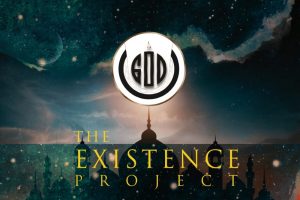
Azhar Goraya, Puerto Rico
In the previous two articles (Part 1 & Part 2), the nature of God and the essence of Islamic worship were examined. It was established that God was not at all dependent on the worship of man; rather, worship carried great benefits for man. In this article, we will delve into some further questions regarding God, worship, and why it has been made obligatory for man.
Is Worship Unnatural and Imposed Upon Us?
Some may feel that worship is unnatural and burdensome, however worship is, in fact, a natural consequence of the true recognition of God.
The Second Caliph, Hazrat Mirza Bashiruddin Mahmud Ahmad (ra), elaborates this point while commenting on Surah Al-Fatihah, the first chapter of the Holy Qur’an:
‘The Being of Allah Almighty is a hidden treasure which is transcendent and not visible to the servant. The servant recognizes Him through His attributes, and by remembering Him, he becomes so close to Him that he sees Him with the eyes of his heart. This subtle point of man’s spiritual journey is mentioned in these verses and it explains that when man ponders over the four divine attributes of Lord of All the Worlds, the Gracious, the Merciful and Master of the Day of Judgement, his eyes are opened and an intense love for Allah the Almighty is sparked in his heart. It is then that, having been honoured with spiritually beholding Him and being overwhelmed with His love, he spontaneously cries out, “O Lord! You alone do I worship and You alone do I implore for help.”’1
The thesis of Islam is that man is naturally inclined to God, and seeks to worship him. This trait is most apparent during times of difficulty, when man—stripped momentarily of his superfluous and transitory pursuits and desires—realizes the deeper calling of his soul and cries out for the succour and help of God. The Qur’an tells us:
لَهُ دَعْوَةُ الْحَقِّ وَالَّذِينَ يَدْعُونَ مِن دُونِهِ لَا يَسْتَجِيبُونَ لَھُم بِشَيْءٍ
‘Unto Him is the true prayer. And those on whom they call beside Him answer them not at all.’ 2
In another place, Allah the Almighty explains this state of man. He gives the example of those who are about to drown in the sea, and how their souls cry out to Allah, remembering Him. Allah reveals the reality of the matter:
هُوَ الَّذِي يُسَيِّرُكُمْ فِي الْبَرِّ وَالْبَحْرِ حَتّٰى إِذَا كُنتُمْ فِي الْفُلْكِ وَجَرَيْنَ بِھِم بِرِيحٍ طَيِّبَةٍ وَفَرِحُوا بِھَا جَاءَتْھَا رِيحٌ عَاصِفٌ وَجَاءَهُمُ الْمَوْجُ مِن كُلِّ مَكَانٍ وَظَنُّوا أَنَّھُمْ أُحِيطَ بِھِمْ دَعَوُا اللَّهَ مُخْلِصِينَ لَهُ الدِّينَ لَئِنْ أَنجَيْتَنَا مِنْ هٰذِهِ لَنَكُونَنَّ مِنَ الشَّاكِرِينَ
‘He it is Who enables you to journey through land and sea until, when you are on board the ships and they sail with them with a fair breeze and they rejoice in it, there overtakes them (the ships) a violent wind and the waves come on them from every side and they think they are encompassed, then they call upon Allah, purifying their religion for Him, saying, “If Thou deliver us from this, we will surely be of the thankful.”’3
The Promised Messiah (as) relates how a destructive earthquake in the Kangra region in the Punjab province of India during his life revealed this intrinsic nature of man:
‘…The earthquake that struck on 4th April 1905 caused hundreds of thousands of hearts to become so humbled and overawed that they did nothing but cry and beseech God, so much so that even the atheists forgot their atheism. But as the time passed and the shocks ceased, their humbleness also disappeared so much so that I heard that some atheists, who had—at that moment—believed in God, brazenly and shamelessly declared that they had been mistaken and overawed by the earthquake, but that otherwise there was no God.’4
This is the reality of man, in that when he feels that he is powerful and self-sufficient, he forgets a higher power, but when he is placed in a situation outside his control, he cries out and beseeches a higher power that he had previously denied.
Do We Have the Right to Question the Actions of God?
Some believe that even if worship has its benefits and that God has created us for this purpose, we should still have the right to deny or question the manner of His worship and forge our own path.
One must consider however, that the difference between God’s wisdom, knowledge, and power and ours is immeasurable; there exists an gargantuan gap between us and divine prerogative.
It is naïve to suppose that we are entitled to question God, especially regarding our natural (and ultimate) subservience to Him, as if we were in any remote fashion His equals or contemporaries. The Qur’an presents us with the stark reality of the difference between man and God:
خَلَقَ السَّمَاوَاتِ وَالْأَرْضَ بِالْحَقِّ تَعَالٰى عَمَّا يُشْرِكُونَ خَلَقَ الْإِنسَانَ مِن نُّطْفَةٍ فَإِذَا هُوَ خَصِيمٌ مُّبِينٌ
‘He has created the heavens and the earth in accordance with the requirements of wisdom. Exalted is He above all that they associate with Him. He has created man from a drop of fluid, but lo! he is an open disputer.’ 5
How foolish must one be to accept the premise of an All-Knowing God, and then go on to say that any system could be created that is better than His!
Even if one exercises free will (also granted by God) through questioning His commandments, he would still never be able to bring about any change in His sovereignty over mankind. Allah states in the Qur’an:
لَا يُسْأَلُ عَمَّا يَفْعَلُ وَهُمْ يُسْأَلُونَ
‘He cannot be questioned as to what He does, but they will be questioned.’6
The Supreme Creator and Fashioner of this universe, the One Who has no beginning nor end, Who brought all of us into being of His own volition and Who sustains every moment of our existence, does not stand in a position to be questioned by His creation. The Qur’an asks:
أَمْ خُلِقُوا مِنْ غَيْرِ شَيْءٍ أَمْ هُمُ الْخَالِقُونَ أَمْ خَلَقُوا السَّمَاوَاتِ وَالْأَرْضَ ۚ بَل لَّا يُوقِنُونَ
‘Have they been created for nothing, or are they themselves the creators? Did they create the heavens and the earth? Nay, but they have no faith.’7
Denying his formal worship is thus an act of insincerity, ungratefulness and even rebellion against the reality of our existence.

What are the Consequences of not Worshiping Allah?
Foregoing the worship of Allah results in dire consequences. The Qur’an states that those who arrogantly turn away from the worship of God will be punished in the afterlife:
وَقَالَ رَبُّكُمُ ادْعُونِي أَسْتَجِبْ لَكُمْ إِنَّ الَّذِينَ يَسْتَكْبِرُونَ عَنْ عِبَادَتِي سَيَدْخُلُونَ جَھَنَّمَ دَاخِرِينَ
‘And your Lord says: “Pray unto Me; I will answer your prayer. But those who are too proud to worship Me will surely enter Hell, despised.”’8
This condition explains that pride is such a vanity that will cause people to turn from God despite signs. Their pride will lead them down the path to immortality, and they will forget that there is a God Who is All-Powerful, and will punish them for their transgressions.
There are also consequences that appear in this world. Allah states that He cares not for those that do not worship Him:
قُلْ مَا يَعْبَأُ بِكُمْ رَبِّي لَوْلَا دُعَاؤُكُمْ فَقَدْ كَذَّبْتُمْ فَسَوْفَ يَكُونُ لِزَامًا
‘Say to the disbelievers: “But for your prayer to Him my Lord would not care for you. You have indeed rejected the truth, and the punishment of your rejection will now cleave to you.”’9
One who lives a life without the attention and love of God is deluding himself into a false sense of happiness. In another verse, Allah states that those who do not worship Him will have a life that is full of misfortune. Allah explains:
وَمَنْ أَعْرَضَ عَن ذِكْرِي فَإِنَّ لَهُ مَعِيشَةً ضَنكًا وَنَحْشُرُهُ يَوْمَ الْقِيَامَةِ أَعْمىٰ
‘But whosoever will turn away from My Remembrance, his will be a strait life, and on the Day of Resurrection We shall raise him up blind.’10
If Worship is For Our Own Benefit, Why Would God Punish Us If We Don’t Worship Him?
A natural question to the above verses revealed by God is: if God has created us for His worship and has explained to us the benefits of worshiping Him, why does He punish us if we still refuse to worship Him?
The answer is that God is Merciful, but He has created man for a specific purpose and has equipped him with all the appropriate faculties to fulfill that purpose. This purpose is the worship of God, and everything that worship and belief entails. The Qur’an states:
وَمَا خَلَقْتُ الْجِنَّ وَالْإِنسَ إِلَّا لِيَعْبُدُونِ
‘And I have not created the Jinn and the men but that they may worship Me.’11
God has placed an inclination to worship Him within mankind’s very nature, and has facilitated his worship by linking it with inner pleasure and satisfaction and promising blessings for doing so, but he has granted freedom of will as well.
There are consequences linked with every action. Positive actions bring positive results (and vice versa). Those that don’t worship God suffer spiritual decay as they cut themselves off from the source of enlightenment and spiritual life. This spiritual emaciation causes much suffering during life and concludes with a person not being able to enter heaven, because one prepares their spiritual faculties in this life in order to be able to use them in the next.
The Qur’an states in one place:
وَمَن كَانَ فِي هٰذِهِ أَعْمىٰ فَھُوَ فِي الْآخِرَةِ أَعْمىٰ وَأَضَلُّ سَبِيلًا
‘But whoso is blind in this world will be blind in the Hereafter, and even more astray from the way.’12
Another profound insight into this question is that certain attributes of God are manifested without the need of other existences, such as His Oneness. Others, however, are related to or act upon His creation.
Man, by virtue of being that subject, enjoys countless blessings of Allah by allowing himself to be washed over with Divine colors. Knowingly or unknowingly, he partakes of the fruits of mercy, forgiveness, and providence.
That is not to say that God is dependent upon man, rather that man exists as the canvas or mirror against which these eternal attributes can be manifested. In a way, he is an intermediary product or catalyst created to facilitate something else. Moreover, God has the power to destroy him and create others in his place in an instant who would fulfill this desire of His. The Qur’an states:
وَرَبُّكَ الْغَنِيُّ ذُو الرَّحْمَةِ إِن يَشَأْ يُذْهِبْكُمْ وَيَسْتَخْلِفْ مِن بَعْدِكُم مَّا يَشَاءُ كَمَا أَنشَأَكُم مِّن ذُرِّيَّةِ قَوْمٍ آخَرِينَ
‘And thy Lord is Self-Sufficient, full of mercy. If He please, He can do away with you and cause to succeed you what He pleases, even as He raised you from the offspring of other people.’13
To allege that God is dependent on man for this reason is to say that a generous man is dependent on the poor who constantly receives his money, or that one who forgives is dependent on the one who is forgiven.
Obviously, these are not cases of dependance, rather of fortunate individuals who receive the good-will of others and become the means by which their good qualities are manifested. At most they can be called those who evoke goodness, but only passively, and in an incomplete fashion.
Such is the case of man: he has been entrusted with freedom of will and thereafter has been granted the enormous honor of being able to exercise it for the worship of God, by which he is deemed worthy to witness the manifestation of many wondrous qualities of the Divine.
Thus, God is not dependent on man, but it is man who is doubly indebted to God for first creating him and thereafter granting such a lofty and sublime purpose to his otherwise meager existence, and thereupon giving him the opportunity to fulfill it.

The Promised Messiah and founder of the Ahmadiyya Muslim Community, Hazrat Mirza Ghulam Ahmad (as), explains this profound insight in the following words:
‘Although it is man who benefits from servitude and worship of God, nonetheless the Providence of God requires and is roused to the end that people reach their destined good fortune by adopting His straight path and forsaking evil actions and becoming absorbed in His worship and obedience.
And if they do not desire to walk this path, then His anger aroused for their own benefit, not His. He afflicts them with various kinds of precautionary punishments, and those that still refuse to understand burn in the fire of remoteness [from God] and despondence.
It can never happen that a person says to him, “Why are you concerned with my well-being, and why do you keep advising us and sending us revealed books and punishing us? If we engage in worship then it will be for our own benefit, and if we don’t then we will suffer the consequences. Why are you so needlessly passionate about it?”
…It is a requirement of the grandeur and majesty of God that man conforms to the condition of servitude and adopts virtuous paths. His divinity intrinsically requires that demonstrations of servitude be manifested before Him…
Although it is true that the benefit or detriment of a man’s actions ultimately revert to him, and the majesty and kingdom of God neither increases nor diminishes at all by it, but this too is an extremely certain and firm truth that Providence demands that man remain in his state of servitude, and that the head of anyone who arrogantly raises it be instantly crushed.
In short, the Being of God demands that His Magnificence, Divinity, Greatness, Majesty and Sovereignty be manifested. Punishment and reward, seeking obedience and servitude and worship is a branch of this requirement.
It is for the manifestation of this Providence and Divinity that He has created this multi-faceted universe. Otherwise, if His nature did not desire this manifestation, then why would He be drawn unnecessarily to the act of creation? Who had burdened Him with the obligation to create this universe?…
After all, there was a faculty of requirement in Him which moved Him to create the universe. There are indications towards this in His holy word, the Holy Qur’an, which demonstrate that God Almighty created this universe so that He may be recognized by virtue of His attribute of being the Creator. After the act of creation, He showered His creation with mercy and blessings so that He would be recognized through His attributes of Mercy and Kindness. In the same way, He rewards and punishes so that He would be recognized as the Punisher and the Benefactor. In the same way, He will resurrect man after death so that He may be recognized as All-Powerful.
In summary, the purpose behind all His wonderful actions is that He may be recognized and identified. Since the actual purpose of the creation of the universe and reward and punishment is the understanding and recognition of God, which is the essence of adoration and worship, it is evident that God Himself requires that His servants recognize Him, a recognition whose complete truth is manifested through adoration and worship. Like a beautiful person, owing to the excellence of his beauty, desires to manifest His beauty, so in the same way God, upon whom true beauty reaches its apex, personally desires that these excellences be manifested upon man.
So, it is evident from this investigation that God desires that His servants worship Him, as it is a means of His recognition. And the Sovereignty of God is roused to destroy whosoever rebels against this desire of His and denies and opposes it. If you carefully study the history of the world concerning how God has dealt with the rebellious and faithless, and then profoundly consider how—from time immemorial—He has treated tyrants and oppressors, it will clearly dawn upon you that this is undoubtedly an established truth that God Almighty intrinsically loves righteousness and abhors and hates vice and desires that people forsake wickedness and adopt righteousness. Though the goodness or evil that man brings about does not benefit or harm His kingdom in the least, nonetheless the requirement of His nature is so situated.’14
Conclusion
Thus, God does not stand in need of any single person’s worship. The worship of God is something that is instinctual for man. It is a natural consequence of contemplating God’s attributes as well as a person’s own inherent weaknesses and necessities. It is an undertaking that squarely benefits humanity, and in no way benefits God.
God has created this universe and man with the purpose of manifesting His attributes, some of which are manifested when he treads the path of worship. Those that oppose this will of God suffer decay of their spiritual faculties, which results in misery in this world and the next. The choice is in the hands of each individual.
About the Author: Azhar Goraya is a graduate from the Ahmadiyya Institute of Languages and Theology in Canada. He is currently serving as an Imam of the Ahmadiyya Muslim Community in Puerto Rico. He is also the Central American Coordinator for The Review of Religions en Español.
ENDNOTES
- Tafseer-e-Kabeer vol. 1, Surah Al-Fatiha, pg. 28. Eng. Trans. from Review of Religions
- The Holy Quran, Chapter 13, verse 15
- The Holy Quran, Chapter 10, verse 23
- Baraheen-e-Ahmadiyya vol. 5, Ruhani Khazain vol. 21, pg. 201. Eng. Trans. Baraheen-e-Ahmadiyya vol. 5 pg. 280-281
- The Holy Quran, Chapter 16, verse 4-5
- The Holy Quran, Chapter 21, verse 24
- The Holy Quran, Chapter 52, verses 36-37
- The Holy Quran, Chapter 40, verse 61
- The Holy Quran, Chapter 20, verse 78
- The Holy Quran, Chapter 20, verse 125
- The Holy Quran, Chapter 51, verse 57
- The Holy Quran, Chapter 17, verse 73
- The Holy Quran, Chapter 6, verse 134
- Surmah Chashma Arya, Ruhani Khazain vol. 2, pgs. 264-268




Add Comment